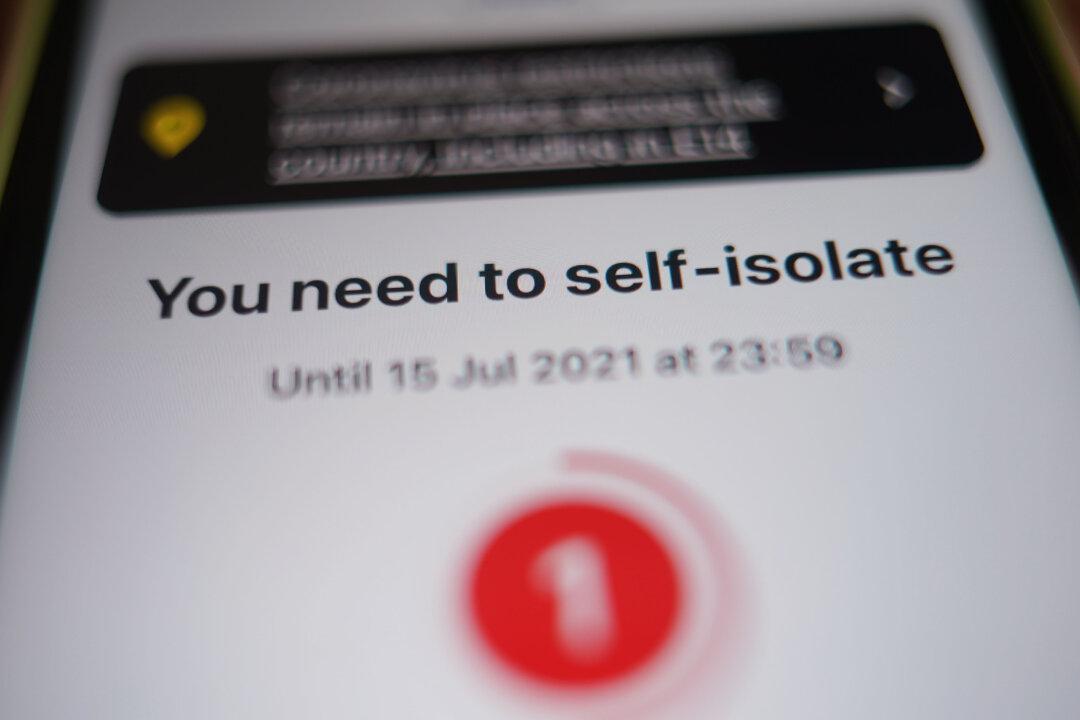Under pressure from businesses and unions, the UK government has dialled down its COVID-19 app in order to ease the labour shortage that has resulted from large numbers of workers having to self-isolate.
As a result of a government review, the app will now instruct fewer people to self-isolate following contact with a person who has tested positive for the CCP (Chinese Communist Party) virus.





